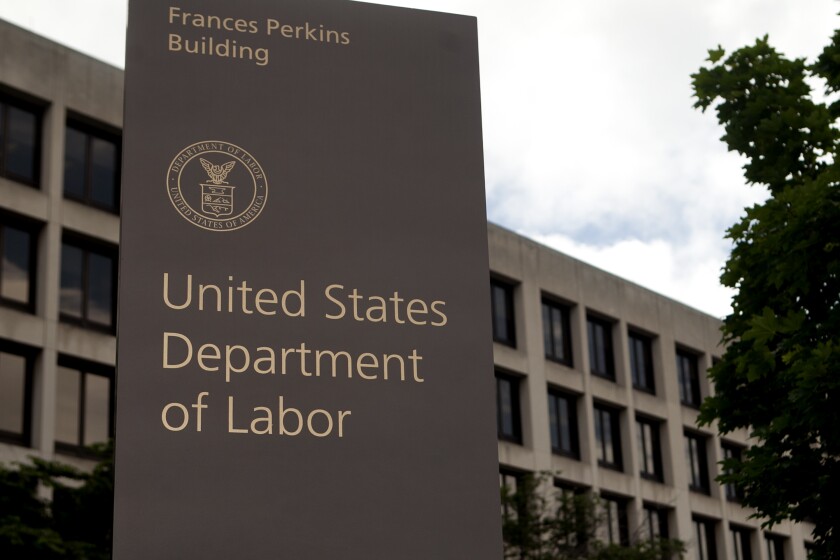Many companies are postponing product rollouts until the economy improves, but the Samsung Money debit card could be better suited for spending habits during the coronavirus pandemic.
Coronavirus has already forced changes in the way people shop and pay, creating more demand for a product like the debit card Samsung plans to launch this summer, experts say.
Rewards, which have been a core part of Samsung Pay since its launch five years ago, will be central to Samsung Money and may have more appeal right now to cash-strapped consumers, along with interest-earning power for balances on the virtual prepaid debit Mastercard issued by The Bancorp.
The ability to immediately apply for and use the debit card, issued from within the Samsung Pay app, could also be a strong draw for consumers looking to combine cash management with contactless payments at a time when avoiding virus exposure at checkout is paramount.

"We all know how hard it is to change payment habits, but in two months coronavirus has done a year's worth of work in changing the way people think about paying with cards,” said Richard Crone, a principal with Crone Consulting LLC.
Crone estimates contactless payment transaction volume has risen 20% since March as merchants promote contactless checkout, and consumer awareness of NFC-enabled cards has increased as a way to avoid touching PIN pads. But fewer than half of consumers currently have a contactless card in their wallet.
The U.S. Small Business Administration and the Treasury Department relaunched the Paycheck Protection Program on Monday to new borrowers, prioritizing loans from community lenders.
Growth in small business jobs and wages declined last month as a result of the novel coronavirus pandemic, according to payroll giant Paychex.
The economic fallout from the coronavirus pandemic is continuing.
Samsung Money by SoFi, the San Francisco-based fintech platform, instantly activates as soon as customers are approved through the Samsung Pay app, and a contactless-enabled physical card will follow by mail, Samsung said in a Wednesday press release. Users also have free ATM access through the Allpoint Network.
Existing Samsung Pay users with at least 1,000 points can flow their rewards into the Samsung Money by SoFi account, and others may enroll in Samsung Pay to earn points on every purchase using Samsung Pay with their device. Samsung Money is compatible with Samsung Galaxy devices.
Samsung enters a crowded field for app-based payment cards, with Apple Card still gaining momentum, PayPal and Venmo already offering prepaid debit cards and Google preparing a checking account that will likely have a linked card.
Samsung's strategy differs from Apple Card, which confines cash-back rewards to a credit card, and primarily for Apple Pay purchases with mobile devices (Apple loosened this restriction during the pandemic, allowing rewards for purchases made on the physical card at Walgreens). The physical version of Apple Card isn’t contactless.
By releasing Samsung Money by SoFi as a checking account alternative in the midst of the pandemic, Samsung also is getting a jump on Google, which has plans to launch a checking account available through various banks.
Offering incentives and rewards to consumers to build adoption for third-party wallets like Apple Pay and Google Wallet — a precursor to Google Pay launched in 2011 — has had mixed results. Neither Apple Pay nor Google offer rewards on an ongoing basis for users apart from Apple Card customers.
Despite challenges including a handset recall early in Samsung Pay's launch, the technology company has used rewards as a foundational benefit of Samsung Pay from the beginning, said Wei Kei, managing partner with Simon-Kucher & Partners, the global consulting firm.
“Samsung Pay’s loyalty program is behaviorally optimized, and they have used rewards to get people to choose it without thinking, building muscle memory,” Kei said.
Rewards accumulate every time Samsung Pay users make purchases in stores and online, accelerating from one point for the first nine transactions up to three points after 20 transactions.
Crone thinks consumers will care more about the convenience of instantly applying for a contactless card during a time of heightened sensitivity around virus germ exposure.
“Smaller banks and credit unions that don’t already have contactless cards on the way to consumers and can’t issue contactless cards instantly in branches are at a disadvantage now, because Samsung Money gives users that contactless card with instant issuance in the app,” Crone said.




